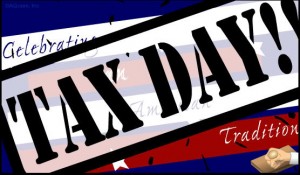
Wealthy Still Spending After Tax Increase
The fiscal cliff was the big story in the news recently. One of the major debates was that the wealthy were to be taxed more. Prior to January 1, 2013 it had been proposed that if the wealthy were heavily taxed that this would stop the economy from moving forward. A recent poll shows that this may not be the case.
A new poll is showing that most of the Americans that make $500,000 or more a year (this is the group that is paying the higher income tax rate) have said that the tax increase has not affected their spending. It seems this group is still spending the same amount on charitable contributions, investment plans, and overall spending.
The poll was reported by the Shullman Luxury and Affluence Monthly Pulse, which is a division of a research center that studies the spending habits of the wealthy. The report discovered that 55 percent of taxpayers that made over $500,000 or more said that the tax increase had not affected their spending plans. Meanwhile the poll also showed that 61 percent of people that make $250,000 or more also stated that the tax hike had not affected their spending either.
The poll also showed that in regards to investing, 59 percent of those making $500,000 said the tax rate increase had not affected their investment strategies. Meanwhile 64% of the people that make $250,000 or more a year also had not changed their investment spending. Lastly, the poll also proved the wealthy are still donating the same amount to charities as well. The study shows that 55% of those making $500,000 or more are still donating the same amount to charity, meanwhile 62% making $250,000 or more are also still donating the same amount as well.
There are still however some wealthy that have changed their spending due to the tax increase, but they are in the minority. The study also indicates that the wealthy have mixed opinions on the condition of the economy. About a third of the people are optimistic about the future of economy, meanwhile a third of these wealthy individuals seem to be pessimistic on the economy. Overall, the study shows that business owners seem to be more optimistic than non-business owners.
The research center is also showing that wealthy women seem to be more pessimistic on the economy. The poll discovered only 21 percent of women were confident of the economy, meanwhile 46percent of the men were encouraged by the state of the economy.
It is a positive sign for the economy that the higher income individuals spending habits remain the untouched due to the tax increase. The majority of the rich are able to pay more in taxes, spend the same on investments, charitable contributions, and overall spending patterns remained untouched.
If you have tax any questions or tax debt you are unable to pay, our tax settlement professionals are happy to discuss your tax resolution options free of charge. For more information about our services, visit us today at www.professionaltaxresolution.com. With over 16 years in the business of resolving tax debt, we have a thorough understanding of tax law together with the experience to know which settlement option will be the best fit for your specific set of circumstances.
For more information about our tax debt resolution services, visit us at www.professionaltaxresolution.com. Contact us by phone at 877.889.6527 to receive a free, no obligation consultation




